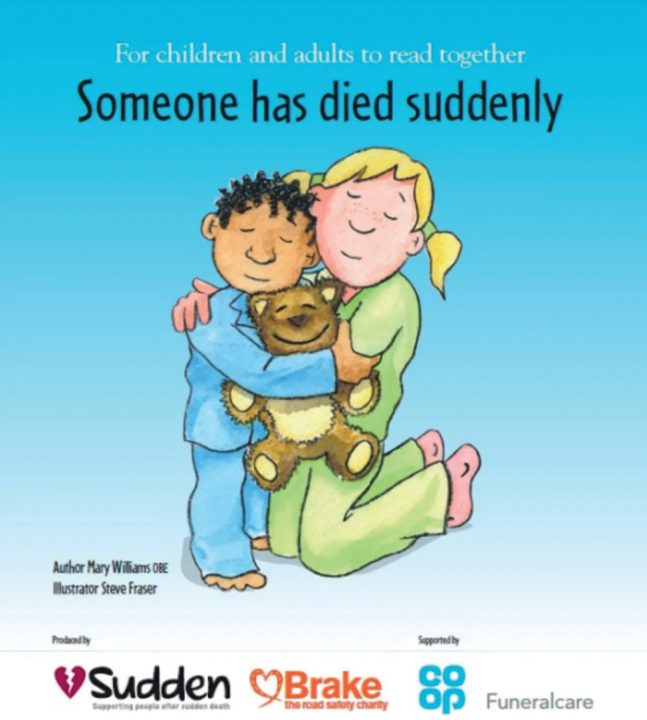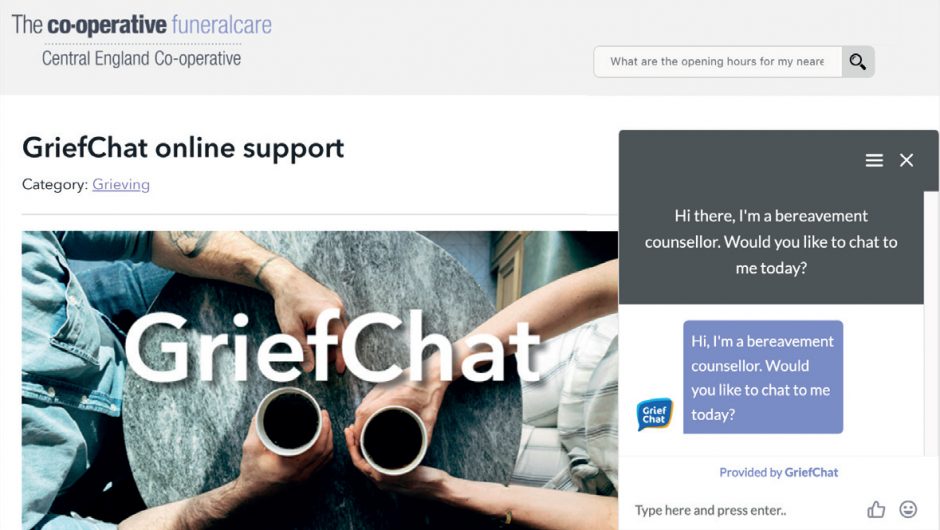“Every year in England and Wales about 500,000 persons pass into the Great Beyond,” wrote JM Lucas in 1937.
“It is [at that time] the mutual support offered by co-operation is most needed. Co-operators are not concerned merely with trade. They are concerned with social activity, with education, and with service. There is a large range of services ministering to human needs which should be provided in accordance with co-operative ideals. The last service of funeral furnishing is one that the movement must provide for its members if it is to maintain its proud claim to supply all essential needs.”
Mr Lucas was manager of the Funeral Furnishing and Monumental Masonry department of the UK’s CWS. He found that at the end of 1936, 250 societies were engaged in funeral furnishing, and were pioneering the idea of chapels
of repose.
“I believe,” he wrote, “that co-operative funeral departments have greatly enhanced the reputation of the societies operating them and that those people who have had to make a call upon them have realised the efficiency, combined with the broadminded and understanding sympathy that mutual effort can provide.”
The CWS’s early pledge to offer ‘cradle to grave’ services has some of its roots in the early friendly societies of the 19th century, where members gathered once a week and put a penny in a wooden box with two locks (one key held by the secretary, the other by the treasurer); if a member became ill, died, or needed support, the box was opened and a discretionary payment was made.
It was when death rates fell, health improved and money accumulated faster than claims were made that these societies looked to use funds for other pressing issues affecting members, such as fairly priced coal and food; many of these societies later reincorporated as retail co-ops. In 1904, the CWS launched the collective life assurance plan, which would pay a sum based on the amount of purchases made over a period of years.
A co-operative end
End of life services offered by co-operatives have today evolved to ensure people are at the centre of different aspects of such difficult times.
One example is Co-operative Care Colne Valley (CCCV), which was established to support both vulnerable people who require support and those who choose to enter the care profession. The aim of CCCV is to make high-quality care accessible and within the control of those who need it. It is an example of a large-scale umbrella co-operative that is able to deliver personalised care and support, through smaller scale community-based providers. For example, it works to treat user members as individuals with unique needs and views on how the service should be run.
When the end of a life is reached, co-ops are found there, too. In Santa Fe, for example, the Death Doula Co-operative was founded in 2018 by a team of like-minded, trained and certified death doulas. These “death midwives” are “committed to providing a variety of non-medical support services to anyone interested in discussing, planning, dealing with the emotional, physical, spiritual and other challenges associated with living as full a life as possible, while recognising that death and dying are an integral part of a ‘full-circle perspective’.”
For founder-member ChrisTina Maestas-Simek, the person-centred approach to demystifying death is a core function of the co-operative. “It is all a matter of caring, intention, authentic relationships, and open hearts,” she says. Through the co-operative, ChrisTina also works with supporting and empowering family and friends who make up the wider care team. “When there is less fear and greater ease, death can be one of life’s most profound teachers for everyone present.”
In the UK, funeral care services are still offered by the majority of independent retail societies. Free funerals are given for children and memorial services are hosted at particular times of year – such as Mother’s Day and Christmas. And last year the Co-op Group launched a pregnancy loss policy to support colleagues through bereavement and grief.
At the funerals themselves, co-ops are supporting people who are looking to create their own bespoke funerals. “The bereaved are starting to know more about the options that are available to them and are more willing to exercise their right to personalise a funeral,” says funeral historian Dr Julian Litten in a report for Central England Co-operative on ‘The Ways We Say Goodbye’.
“In today’s multi-cultural and increasingly secular society, new trends are constantly being added to our established customs. This is to be welcomed, for it is in this way that these traditions are allowed to develop.”
Some of Central England’s more unusual requests have been a gardener who had his funeral ceremony in his own garden, a Viking themed funeral that included a coffin in the shape of a Viking longboat, and different vehicles being used as an alternative to a hearse.
Co-operating beyond a funeral
But grief doesn’t end with the funeral, and co-operatives are also there for those left behind. In 2010, the Co-op Group launched the Amy and Tom books in partnership with Sudden (an initiative by the charity ‘Brake’) – a tool for bereaved primary school-aged children that are distributed free of charge to bereaved families, family liaison officers, schools, and medical professionals across the country.

In Portsmouth, Southern Co-operative helped to set up Bereavement Care in 2000, which is designed to help and support people struggling to deal with bereavement through one-to-one support, wellbeing and friendship groups, and educational services.
“It is after the funeral has taken place that so many people begin to come to terms with their new and unwelcome situation,” says the society, “Family and friends may offer help and companionship, but they lead their own lives too. For those whose families have grown up, and left their parents to have families of their own, it is an especially difficult adjustment.”

Similarly, Central England Co-operative has partnered with GriefChat, a free online chat service with trained bereavement counsellors that runs between Monday-Friday, 9am-9pm.
“Everyone grieves in a way that is unique to them and their relationship with the person who has died,” says Central England. “No one can understand exactly what your loss feels like to you. Although, it’s sometimes easier to talk to someone outside of your friends and family about grief and the impact of bereavement on your life and this is why we offer the GriefChat service.”